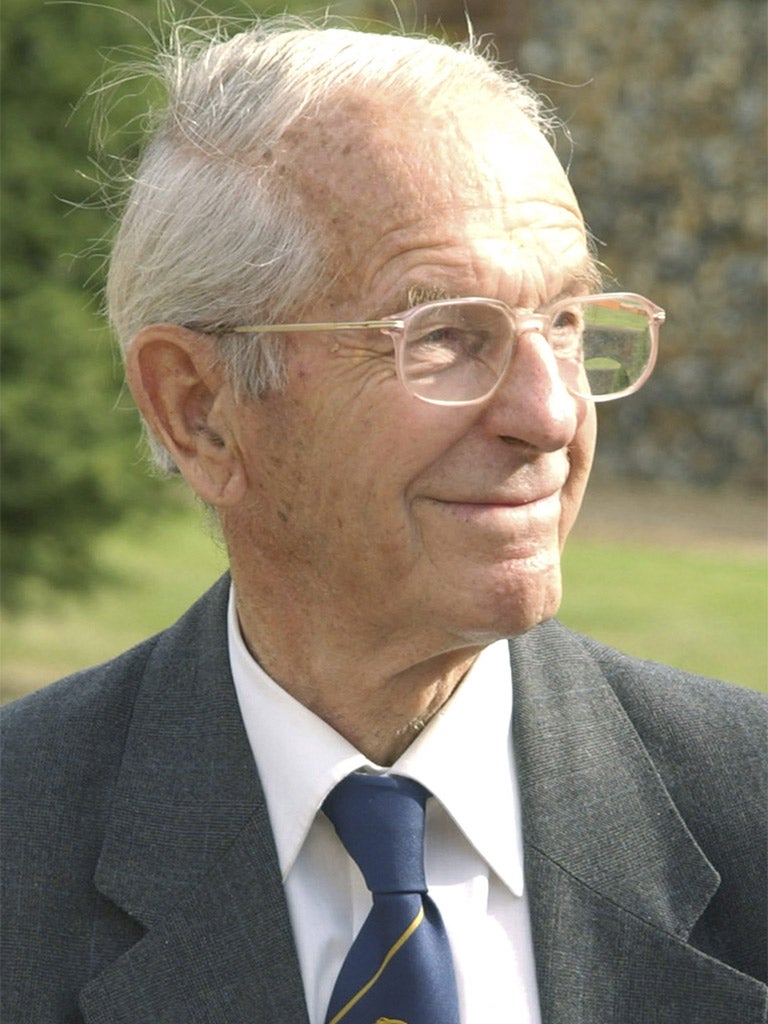Fred Sanger dies at 95: 'Father of the genomics' and only Briton ever to win two Nobel Prizes
Dr Sanger was 'one of the most important scientists of the 20th century'

Tributes flooded in today in memory of Fred Sanger, the double Nobel-prizewinning scientist and father of the DNA sequencing technique used to unravel the human genome, who died on Tuesday at the age of 95.
Dr Sanger is one of only four people in the world to be awarded two Nobel prizes and was the only person to win the chemistry prize twice, once, in 1958, for the sequencing the insulin protein and another in 1980 for sequencing the DNA molecule.
Colleagues remembered a highly modest man and outstanding experimentalist who preferred doing things in the laboratory to talking about them in public lectures and media interviews.
He retired at 65 from the Laboratory of Molecular Biology in Cambridge and lived to see other researchers complete the first full sequence of the human genome based largely on his pioneering work, which had led to his second Nobel Prize in 1980.
“He was really a hero of mine. He was the quiet scientist. He hated talking and he liked doing things. He was always involved in getting things done,” said Sir John Sulston, Nobel laureate the first director of the research centre named after Sanger – now called the Sanger Institute.
“He had a quiet modesty and although not a religious man he probably inherited something of his parents’ Quaker traditions. He had a strong moral standing. He was a very upright man,” Sir John said.
Venki Ramakrishnan, Nobel laureate and deputy director of the Laboratory of Molecular Biology, said: “Fred was one of the outstanding scientists of the last century and it is simply impossible to overestimate the impact he has had on modern genetics and molecular biology. Moreover, by his modest manner and his quiet and determined way of carrying out experiments himself right to the end of his career, he was a superb role model and inspiration for young scientists everywhere.”
Dr Sanger refused a knighthood on the grounds that he did not want to be called “Sir”, although he did later accept the Order of Merit. He often worked with quiet determination in unfashionable areas of molecular biology, ultimately with spectacular results.
“Fred Sanger was one of the most important scientists of the 20th century,” said Craig Venter, the American scientist who led the rival private effort to sequence the human genome to the one supported by public institutions in Britain.
“He twice changed the direction of the scientific world, first with the sequencing of insulin, proving that proteins were linear strings of amino acids and second with his then new method of sequencing DNA, which led to the field of genomics. His contributions will always be remembered,” Dr Venter said.
Sir Mike Stratton, director of the Wellcome Trust Sanger Institute in Cambridge, said: “Fred was an inspiration to many, for his brilliant work, for his quiet determination and for his modesty. He was an outstanding investigator, with a dogged determination to solve questions that have led to transformations in how we perceive our world.
“His work for his second Prize, a method to decode DNA, has transformed our understanding of life on earth and is the foundation of developments in healthcare from understanding inherited disease to developing new cancer treatment.”
Richard Henderson, former director of the Laboratory of Molecular Biology, said: “He was a superb hands-on scientist with outstanding judgement and skill, and an extremely modest yet encouraging way of interacting with his younger colleagues. I particularly remember one young scientist who had asked Fred for advice being told ‘I think you should try harder’.”
Join our commenting forum
Join thought-provoking conversations, follow other Independent readers and see their replies
Comments
Bookmark popover
Removed from bookmarks